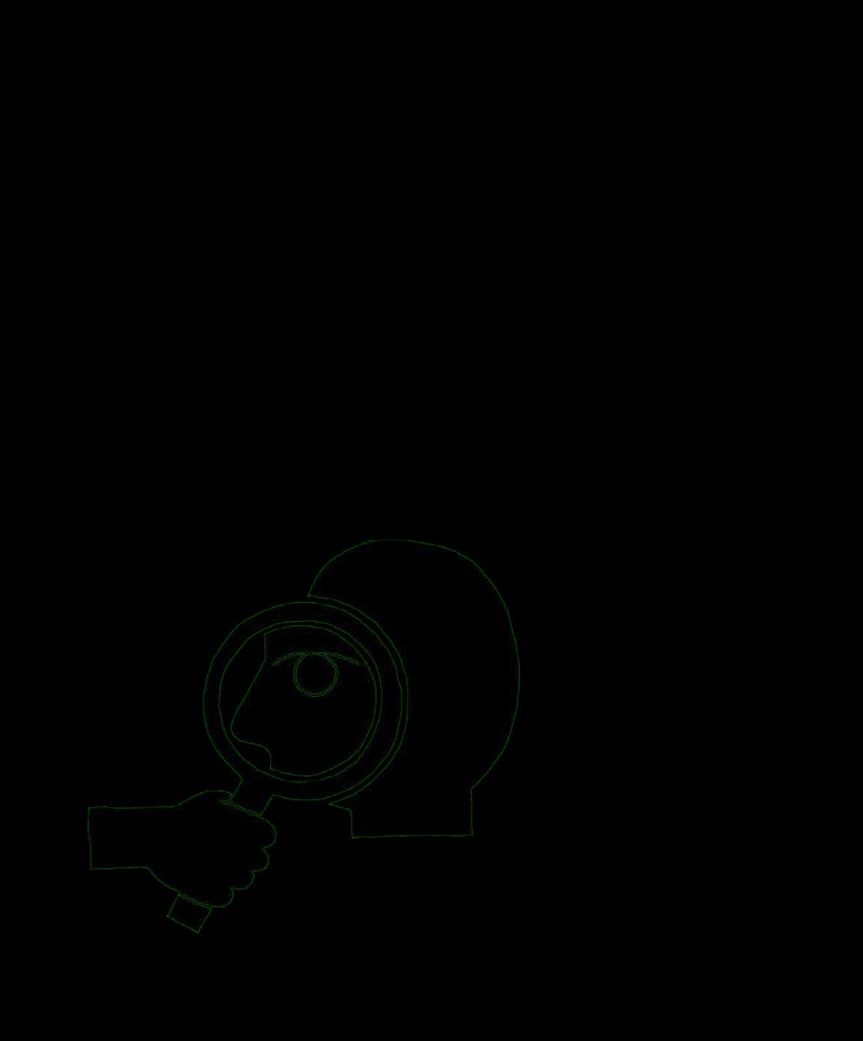The Psychology Book (55 page)
Read The Psychology Book Online
Authors: Unknown

by translating the binary chunks
psychology at Rockefeller
into decimal numbers: 01 became
University, New York, and
1, 10 became 2, and so on. He found
Princeton University. In 1991,
The kind of
that by using this system it was
he was awarded the National
linguistic recoding
possible to memorize and accurately
Medal of Science.
that people do
reproduce a string of 40 digits or
more, as long as the number of
seems to me to be
Key works
chunks was limited to the span
the very lifeblood of
of working memory.
the thought processes.
1951
Language and
As an aid to memorizing large
George Armitage Miller
Communication
1956
The Magical Number
amounts of information, chunking
Seven, Plus or Minus Two
and recoding is an obvious boon,
1960
Plans and the Structure
but it is more than a mnemonic
of Behavior
(with Eugene
trick. Miller pointed out that this
Galanter and Karl Pribram)
form of recoding is an “extremely

174
THERE’S MORE
IN CONTEXT
APPROACH
Cognitive therapy
TO THE SURFACE BEFORE
1890s
Sigmund Freud
proposes an analytic approach
to psychotherapy.
THAN MEETS
1940s and 1950s
Fritz Perls,
with Laura Perls and Paul
Goodman, develops Gestalt
THE EYE
therapy—a cognitive approach
to psychotherapy.
1955
Albert Ellis introduces
Rational Emotive Behavior
AARON BECK (1921– )
Therapy (REBT), breaking with
the tradition of analysis.
AFTER
1975
Martin Seligman defines
“learned helplessness” in
Helplessness: On Depression,
Development, and Death
.
1980s
A blend of Beck’s ideas
and the behavior therapies of
Joseph Wolpe give rise to new
cognitive behavioral therapies.
A
fter psychology had
become established as
a distinct field of study,
around the turn of the 20th century,
two main schools, or approaches,
emerged. These were experimental
psychology, which was dominated
by the behaviorism originating
from Ivan Pavlov’s experiments,
and which was enthusiastically
championed in the US; and clinical
psychology, which was largely
based on the psychoanalytical
approach of Sigmund Freud and
his followers. The two had little in
common. Behaviorists rejected the
introspective, philosophical
approach of earlier psychologists,
and strove to put the subject on a

COGNITIVE PSYCHOLOGY 175
See also:
Joseph Wolpe 86–87 ■ Sigmund Freud 92–99 ■ Fritz Perls 112–17 ■
Albert Ellis 142–45 ■ Martin Seligman 200–01 ■ Paul Salkovskis 212–13
Psychoanalytic therapy
Cognitive therapy
places an emphasis on
places an emphasis on
delving into the patient’s
examining people’s
unconscious
to solve
perceptions
of their
current disorders.
experiences.
Aaron Beck
The evidence for the
There is
strong
success of psychoanalytic
Born in Providence, Rhode
empirical evidence
for
therapy is based on
Island, Aaron Temkin Beck
the success of cognitive
personal accounts
rather
was the son of Russian Jewish
therapy.
than facts or research.
immigrants. Athletic and
outgoing as a young child, he
became far more studious and
introspective after suffering a
serious illness at the age of
The key to
effective treatment
lies not in the unconscious,
eight. He also acquired a fear
but in the examination of
how a disorder manifests itself
of all things medical and,
in a patient’s perceptions.
determined to overcome this,
decided to train as a doctor,
graduating from Yale in 1946.
Beck then worked at Rhode
Island Hospital, before
There’s more to the surface than meets the eye.
qualifying as a psychiatrist in
1953. Disillusioned with the
psychoanalytical approach
to clinical psychology, he
more scientific, evidence-based
to all of them. Some psychologists
instigated cognitive therapy
footing. The psychoanalysts
were beginning to question the
and later established the
explored those very introspections,
validity of this kind of therapy, and
Beck Institute for Cognitive
with theories, rather than proof,
Aaron Beck was among them.
Therapy and Research in
to support their case.
When Beck qualified as a
Philadelphia, now run by his
psychiatrist in 1953, experimental
daughter, Dr. Judith Beck.
Cognitive revolution
psychology was focused on the
Key works
By the mid-20th century, both
study of mental processes—it
approaches to psychology were
was the dawn of the “cognitive
1972
Depression: Causes and
being critically examined. But
revolution.” However, the practical
Treatment
although behaviorism was being
approach of cognitive psychologists
1975
Cognitive Therapy and
overtaken by cognitive psychology
remained much the same as that of
the Emotional Disorders
in experimental work, the clinical
the behaviorists. If anything, they
1980
Depression: Clinical,
sphere was offering no alternative
were frequently even more rigorous
Experimental, and Theoretical
to the psychoanalytical model.
in establishing evidence for their
1999
Prisoners of Hate: The
Psychotherapy had evolved into
theories. Beck was no exception
Cognitive Basis of Anger,
many forms, but the basic idea of
to this. He had trained in and
Hostility, and Violence
psychoanalysis and exploration
practiced psychoanalysis, but grew
of the unconscious was common
skeptical of its effectiveness as a ❯❯

176 AARON BECK
Psychoanalytic Institute on the
and evaluate how realistic or
grounds that his “desire to conduct
distorted their perceptions were
scientific studies signaled that he’d
was the first step in overcoming
been improperly analyzed.” Those
depression. This flew in the face of
who found fault with the idea of
conventional psychoanalysis, which
analysis did so, some analysts
sought and examined underlying
I concluded that
argued, because of insufficient
drives, emotions, and repressions.
psychoanalysis was a
analysis of themselves.
Beck’s “cognitive therapy” saw
faith-based therapy.
Beck was suspicious of both
this as unnecessary or even
Aaron Beck
the circularity of these arguments,
counterproductive. The patient’s
and the link with the therapist’s
perception could be taken at face
own personality. Coupled with his
value because, as he was fond of
personal experience as a practicing
putting it, “there’s more to the
psychoanalyst, this led him to
surface than meets the eye.”
examine thoroughly every aspect of
What Beck meant by this was
therapy, looking for ways in which
that the immediate manifestations
therapy. He could find no reliable
it could be improved. He carried out
of depression—the negative
studies of the success rates of
a series of experiments designed to
“automatic thoughts”—provide all
psychoanalysis—only anecdotal
evaluate the basis and treatment of
the information needed for therapy.
evidence of case reports. In his
depression, one of the most common
If these thoughts are examined
experience, only a minority of
reasons for seeking psychotherapy,
and compared with an objective,
patients showed improvement
and found that far from confirming
rational view of the same situation,
under analysis, and the general
the idea that this condition could
the patient can recognize how
consensus among therapists was
be treated by examination of
his perception is distorted. For
that some got better, some got
unconscious emotions and drives,
example, a patient who has been
worse, and some stayed about the
his results pointed to a very
offered a promotion at work might
same, in almost equal numbers.
different interpretation.
express negative thoughts such as
Of particular concern was the
“I’ll find the new job too difficult,
resistance of many psychoanalysts
Changing perceptions
and fail,” a perception of the
to objective scientific examination.
In describing their depression,
Compared with experimental
Beck’s patients often expressed
psychology, or with medicine,
negative ideas about themselves,
psychoanalysis seemed largely
their future, and society in general,
faith-based, with widely different
which came to them involuntarily.
results between individual
These “automatic thoughts,” as Beck
practitioners. Reputation was
called them, led him to conclude
frequently based solely on the
that the way the patients perceived
charisma of a particular analyst.
their experiences—their cognition
Beck concluded that “the
of them—was not just a symptom
psychoanalytic mystique was
of their depression, but also the key
overwhelming… It was a little bit
to finding an effective therapy.
like the evangelical movement.”
This idea, which came to him in
Many psychoanalysts regarded
